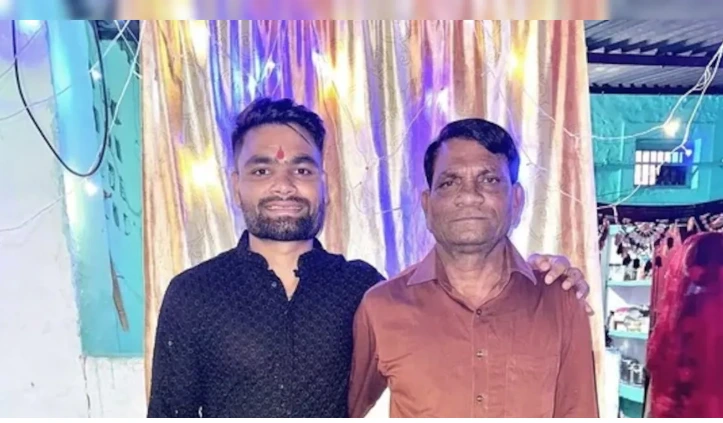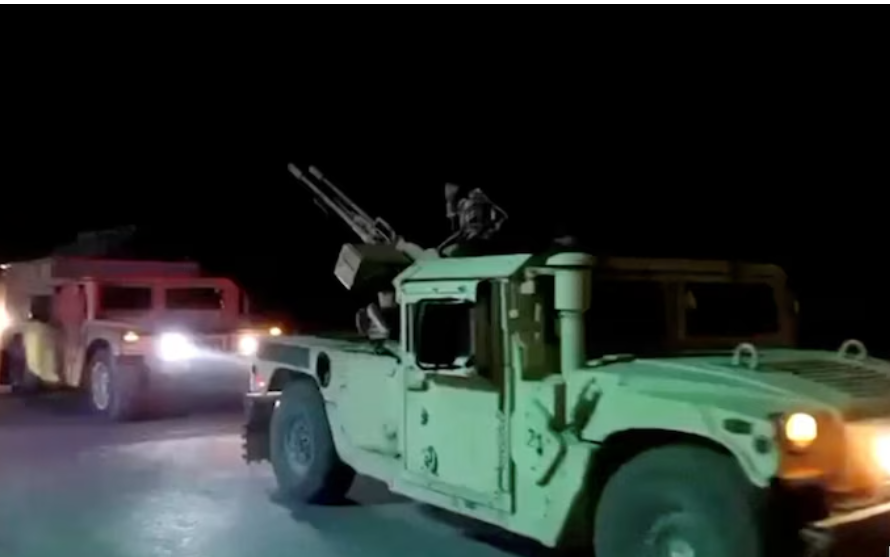[vc_row][vc_column][vc_column_text]After repeated sabre rattling by Pakistan following Narendra Modi government’s Article 370 move, intelligence agencies reported that Pakistan has secretly released Jaish-e-Mohammed chief Maulana Masood Azhar from protective custody.
Azhar, who was designated a terrorist by the United Nations in May 2019, has been released to plan terrorist operations, the Hindustan Times reported.
The HT report said the Intelligence Bureau (IB) also warned that Pakistan was planning “big action” in Sialkot-Jammu and Rajasthan sectors in the coming days in response to the government’s move to revoke Jammu and Kashmir’s special status, preventing non-residents from buying property and getting government jobs in the state. The input warned that Pakistan has started deploying additional troops near the Rajasthan border as part of the plan.
Azhar is now reportedly at the sprawling headquarters of the Jaish-e-Mohammed in Pakistan’s Bahawalpur despite Islamabad’s claims of arresting him, said a NDTV report quoting government sources. Masood Azhar’s last location, according to sources, was the Markaz Subhanallah, the headquarters of the terror group located in Bahawalpur.
Markaz Subhanallah, which means “centre for praising God”, is described by reports as a massive building complex with modern amenities. It is said to host meetings of top Jaish terrorists. Besides Masood Azhar, his brothers and other relatives are believed to be staying in the complex.
Also Read: Schools close on Monday in Bhopal and Sehore in MP due to heavy rain
The Jaish chief’s health has improved but he avoids coming out and delivering sermons, given Pakistan’s claims to the world community about a crackdown on terrorists operating from its soil, said the NDTV report.
Masood Azhar, whose terror outfit claimed responsibility for the February Pulwama attack in which over 40 soldiers were killed, was designated a terrorist in May by the UN after China, Pakistan’s all-weather ally, lifted its technical hold on the proposal by the US, the UK and France to list him.
Pakistan Prime Minister Imran Khan last Friday, Sep 6, threatened “fullest possible response” to India’s moves in Jammu and Kashmir. The comments by Khan, who had earlier said there was a risk of India-Pakistan war, came on a day Pakistani army chief General Qamar Javed Bajwa said they were prepared to “go till any extent”. Bajwa added they were ready to “give sacrifices for our Kashmiri brothers, fulfil our duty till the last bullet, last soldiers and last breath”.
The Indian Navy had recently talked about inputs that Pakistani commandos were prepping to infiltrate into Indian waters through the Kutchh area and use the sea route to try and incite communal trouble or carry out a terror attack in Gujarat. Navy Chief Admiral Karambir Singh had cited intelligence reports that the Jaish was training members for underwater attacks and had said the military was fully prepared to foil such attempts.
National Security Adviser Ajit Doval said on Saturday that more than 200 terrorists were trying to cross into India from Pakistan and Islamabad was trying to stoke violence in the region. “About 230 terrorists are ready to infiltrate into different parts of Kashmir,” Doval told reporters.
“A large number of weapons are being smuggled and people in Kashmir are being told to create trouble,” said Doval, who is considered one of the architects of the policy to withdraw Jammu and Kashmir’s special status.
Azhar is wanted in India for several attacks including the 26/11 Mumbai terror. Last week, the government declared Azhar a terrorist after the Unlawful Activities (Prevention) Act (UAPA) was amended to declared individuals as terrorists too, not just organisations.
Also Read: “Murder 2” Actor Prashant Narayanan Arrested in Cheating Case
Pakistan had detained several leaders of the Jaish-e-Mohammed and restrained its activities after the group claimed responsibility for the Pulwama car bombing in February that killed 40 CRPF troopers and led to the Balakot air strikes by the Indian Air Force. That effort was also driven by Islamabad’s anxiety to signal to the international community that it was serious about cracking down on terror ahead of a meeting of the Financial Action Task Force (FATF) in June.
Pakistan’s hard push to terror elements is timed to coincide with the UN Human Rights Council meetings that begin in Geneva from September 9. Pakistani foreign minister Makhdoom Shah Mehmood Qureshi is personally leading the charge against India in Geneva. Islamabad is expected to either seek an urgent debate or a resolution at the council meeting citing alleged human rights violations in Kashmir.
Pakistan Prime Minister Imran Khan will lead another offensive later this month when he speaks at the UN general assembly. The situation in Jammu and Kashmir is expected to be a key focus of his speech.[/vc_column_text][/vc_column][/vc_row]
























